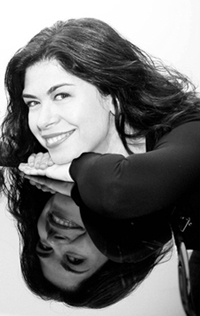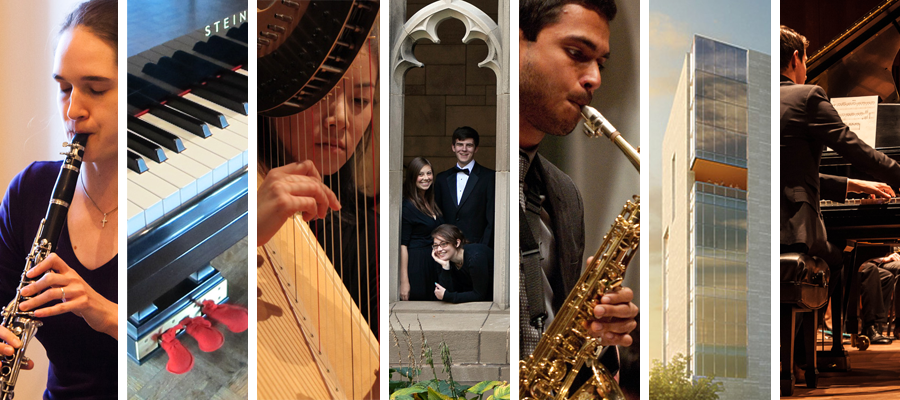 On March 2nd, the Piano Studies program performs J.S. Bach’s complete Well-Tempered Clavier, Book II, in Fulton Recital Hall. (event info) What is the inspiration behind this ambitious program?
On March 2nd, the Piano Studies program performs J.S. Bach’s complete Well-Tempered Clavier, Book II, in Fulton Recital Hall. (event info) What is the inspiration behind this ambitious program?
One of the surprises as I started in the Piano Program was the curious repertoire preferences of new students, usually locked firmly somewhere between late Beethoven and late Brahms, with an occasional over-played bit of Rachmaninoff. When I suggested perhaps learning some Bach, the shocking response was often “Bach is boring”. This is just like saying “Chocolate is tasteless”! (Or waving red in front of a bull.) I must assume that the little bit of Bach taught to these unfortunates in the past was somehow misrepresented, or never properly explained… In my not-at-all nagging way, I would suggest (cajole, order, bribe) learning some Bach pieces with me, and try to illustrate why “boring” is the very last epithet one might apply to them. One after another, students would become converted, and ask for more Bach! The annual Bach project (in its third year now) is a way to convert student en masse, and to allow those already addicted a chance to enjoy lots of this music surrounded by the like-minded.
We all cordially extend an invitation to everyone in the community to come and join us. Especially to those poor souls still not certain that Bach was the greatest musical genius to have graced the Earth!
Can you give a brief synopsis of the journey that brought you here to teach at the University of Chicago?
The invitation to apply for the newly created position of Coordinator of Piano Studies at the U of Chicago came at exactly the right time in my life. I had spent the previous several years enjoying intensive motherhood, as a result of which I had given up serious performing (along with sleep and sanity), and was busy with a thriving home-based piano studio, instead. But, as it must, the time came to hand over my son to his first grade teacher, and I found, to my considerable surprise, that he was perfectly happy to direct at least half of his volcanic energy at her, leaving me with enough energy to pursue life as a pianist again.
Teaching at the U of Chicago proved to be exactly what I needed – an opportunity to work with young pianists who played for all the right reasons – not because it looked good on a college application or because of parental pressure, but because they love music as much as I do. As the scope of the Piano Program expands with each passing year, with more students, more concerts, more accomplishments all around, I grow more excited to go to work each day.
How do you balance your job as the Coordinator of Piano Studies with your rigorous professional life outside the University?
I find that the various aspects of my musical life are all interconnected and synergistic. Teaching practice techniques to students helps me learn music faster, learning interesting new repertoire and performing with excellent musicians helps me grow as a teacher, lecturing about pedagogy to teachers’ groups forces me to shape my ideas into coherent sentences, researching and writing a book opens a window into other pedagogues’ wisdom. (In a moment of shameless self-promotion, I would like to remind everyone to read my book, Busoni as Pianist, available at the Regenstein Library).
Granted, other areas of my life have suffered. My family rarely gets 5-course gourmet home-cooked meals any more. On the other hand, my husband has discovered that the washing machine does not require secret magical incantations to function, a definite plus, and my son seems to actually prefer my new mothering style of benign neglect.
Your students have included professional musicians and numerous scholarship and competition winners. To me, this implies a passion for teaching. What do you enjoy most about working with your students?
As I had mentioned earlier, what makes me happiest in teaching is when I see my passion for music fully shared by students. This means that they see the difficulties and problems in each new piece of music as exciting, rather than tedious. I also rather enjoy being challenged and questioned, which happens daily when working with some of the most brilliant people around!
As a pedagogue, lecturer, and recitalist, you are in high demand. Where will these pursuits lead you in the coming year?
My central project as a soloist this year has been the centennial of Stravinsky’s Rite of Spring. I have been performing a fabulous two-hand piano transcription of the Rite by Chicago’s own Vladimir Leyetchkiss all over US and Asia, and will continue to do so, including live on WFMT in June. I will also be recording it in the summer. My piano duo, EStrella, has a number of upcoming concerts featuring two-piano compositions by Mozart and about Mozart, with transcriptions, variations and adaptations of his works ranging from the worshipful, to silly, to frankly sadistic. I am also going to be playing the harpsichord with Syntagma Musicum, possibly the most frightening and nerve-wrecking prospect of all.
Interview by Julia Tobiska
